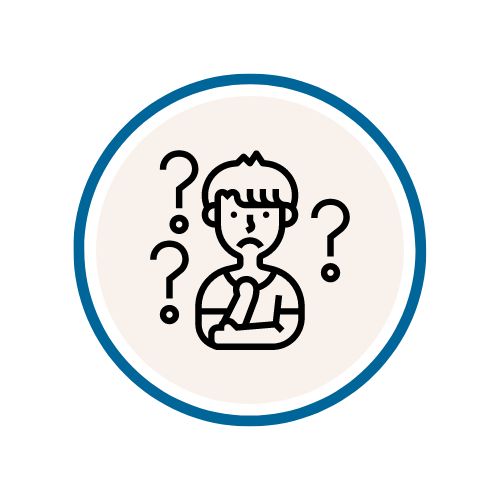
Nervousness
Help! Butterflies in your stomach, dry mouth, dizzy, feeling faint, hands sweating, heart pounding! When you’re nervous, it’s hard to concentrate on anything other than what your body is feeling. Thoughts feed the nervousness: ‘help, I can’t do it’, ‘help, I’m going to mess up and everyone will laugh’. Then you feel like running away and not going into the whole situation, maybe finding an excuse to avoid it. Familiar feelings to most people.
Permission to be nervous
When you get nervous and tense, your body’s reactions intensify. Often these reactions, such as a pounding heartbeat, shaking hands and blushing, are interpreted as bad things that others should never notice. The nervousness increases even more when you have to try to pretend that you are not nervous at all. In fact, you should do the opposite and give yourself permission to be nervous and tense.
What makes us nervous?
Performing, interacting with others, messing up. We all get nervous sometimes. Nervousness can cause problems with academic performance. Many higher education students are nervous about performances, but sometimes anxiety can even paralyse and significantly hinder study life. Various presentations, dialogues in lectures or, for example, feedback and evaluation situations are common situations of excitement.
Turning nervousness into strength, dare to get excited!
Nervousness is natural. We often think that no one else is nervous or tense. We assume that others are relaxed and confident. In stressfull situations, we also often imagine that everyone notices our nervousness and tense. However, the fact is that usually others don’t so pay much attention to whether someone is nervous and tense. It’s also a fact that tension bothers you more than others. It’s worth remembering that nervousness and tension are easier to deal with when you accept it as part of who you are.
Telling others about your nervousness and tension usually takes the worst edge out of it. Tension can be eased by strengthening self-esteem and accepting oneself as sensitive or shy. Exciting situations should also not be avoided, because then the tension will only increase and the threshold for embarking on new situations will increase. When you expose yourself appropriately to exciting situations, the tension decreases over time.
Could you give yourself permission to be stuttering and blushing? No one has to be perfect. Bring humor with you. Try to let go of the idea that you should perform in such a way that you don’t screw up at all. It’s nice to try permissiveness and gentleness towards yourself and others! Give yourself space to get excited and involved whenever you feel possible. Small steps forward.
Ways to relieve nervousness
It is worth preparing for exciting situations somewhat in advance. You can practice upcoming exciting situations in advance, for example in front of a mirror or with someone close to you. Knowing what is being presented also helps in performing. You know what you’re talking about. But moderation is also there. Too much thought and preparation is not always good. You may start to be nervous about remembering to say everything the way you practiced. Talk to a public health nurse or social worker, for example. Take part in a course on speech communication, interaction and presentation skills at the University of Lapland Language Centre.